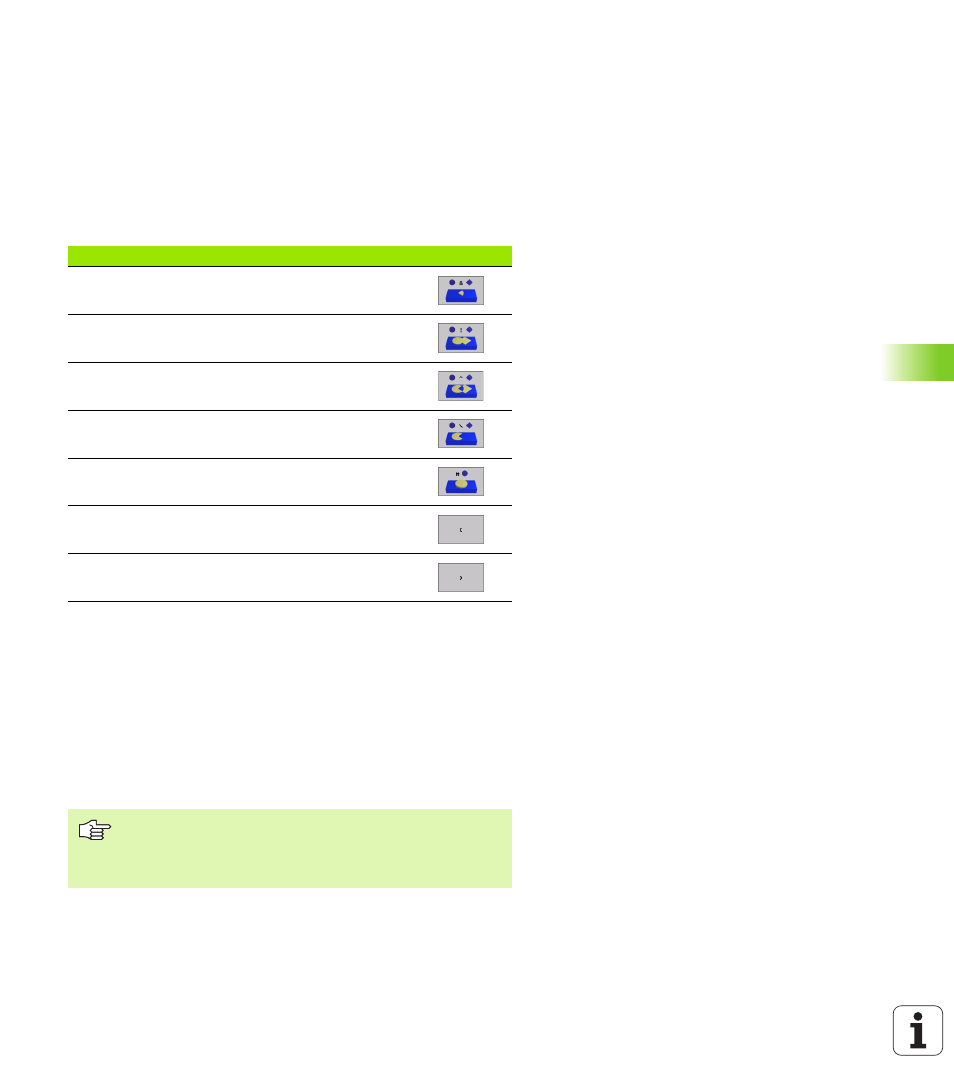Entering a contour formula, Overlapping contours, 8 sl cy cles with cont our f or m ula – HEIDENHAIN iTNC 530 (340 420) ISO programming User Manual
Page 333

HEIDENHAIN iTNC 530
333
8.8 SL Cy
cles with Cont
our F
or
m
ula
Entering a contour formula
You can use soft keys to interlink various contours in a mathematical
formula.
U
U
U
U
Select a Q parameter function: Press the Q key (in the numerical
keypad at right). The Q parameter functions are displayed in a soft-
key row.
U
U
U
U
To select the function for entering the contour formula, press the
CONTOUR FORMULA soft key. The TNC then shows the following
soft keys:
Overlapping contours
By default, the TNC considers a programmed contour to be a pocket.
With the functions of the contour formula, you can convert a contour
from a pocket to an island.
Pockets and islands can be overlapped to form a new contour. You can
thus enlarge the area of a pocket by another pocket or reduce it by an
island.
Subprograms: Overlapping pockets
Pockets A and B overlap.
The TNC calculates the points of intersection S1 and S2 (they do not
have to be programmed).
The pockets are programmed as full circles.
Logic command
Soft key
Intersected with
e.g. QC10 = QC1 & QC5
Joined with
e.g. QC25 = QC7 | QC18
Joined without intersection
e.g. QC12 = QC5 ^ QC25
Joined with complement of
e.g. QC25 = QC1 \ QC2
Complement of contour area
e.g. Q12 = #Q11
Opening parenthesis
e.g. QC12 = QC1 * (QC2 + QC3)
Closing parenthesis
e.g. QC12 = QC1 * (QC2 + QC3)
The subsequent programming examples are contour
description programs that are defined in a contour
definition program. The contour definition program is called
through the %:CNT function in the actual main program.
